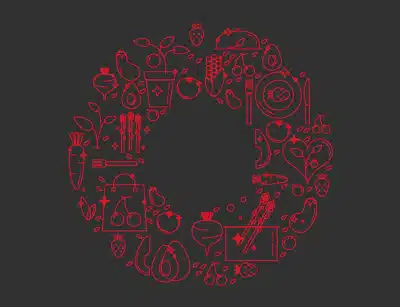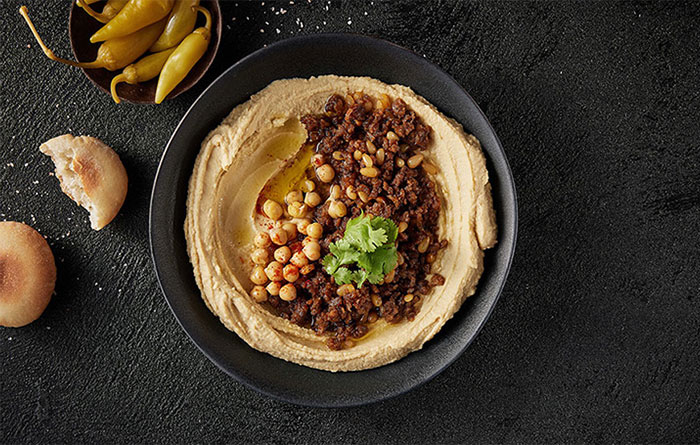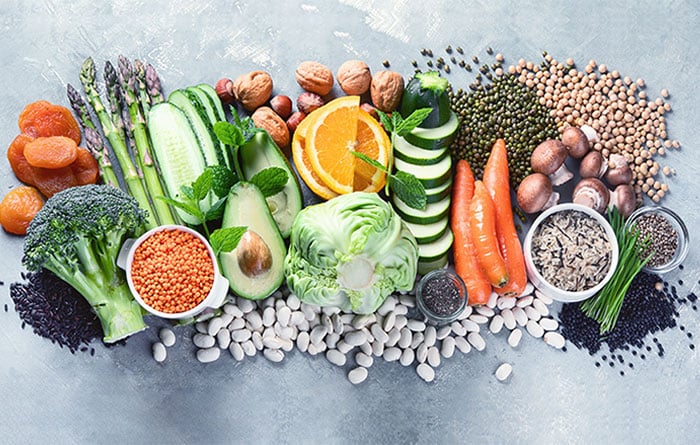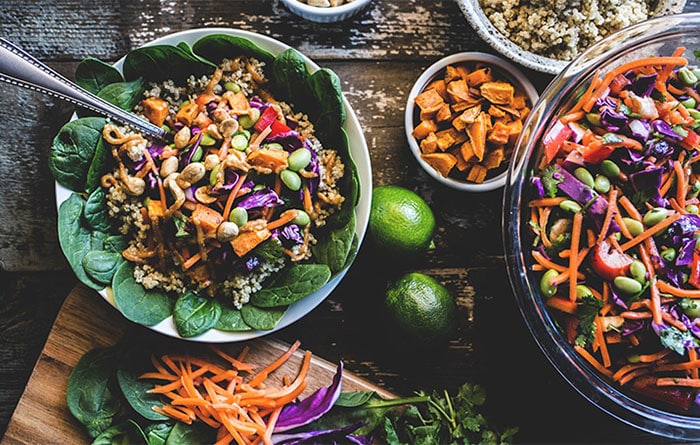
What Is a Plant-Based Diet (and Why Should We Care?)
Everything you read nowadays seems to mention plant-based diets. Once an outlier, plant-based diets (known also as plant-based nutrition), has definitely entered the mainstream.
But, what do we mean when we talk about these diets? Let’s start with the basics. Plant-based diets are made up predominantly of foods coming from plant sources, and by definition, tend to be low in animal products.
A common misconception is that plant-based diets are extreme, requiring people to radically change their routine or give up their favorite foods. The truth is different. Today’s plant-based diets are no longer about abstinence. They are about choice and having greater freedom to eat from a wide variety of food groups. Simplicity is the key to the success of plant-based diets. After all, its main premise is as simple as it sounds: eat more plant-based foods!

Types of Plant-Based Diets
Plant-based diets can cover a spectrum of food lifestyles, from full vegan to vegetarian (including dairy, eggs, or even fish), all the way to semi-vegetarian or flexitarian diets that include small amounts of meat. The plant-based club is open to anyone willing to experiment and can be adapted to suit most lifestyles and ideologies.
Getting started is easy. Simply add as many vegetables, fruits, legumes, seeds, and whole grains to your shopping basket as possible, together with nuts and leafy greens. Then find delicious recipes for preparing dishes including all these yummy, good-for-you ingredients.

Benefits of Plant-Based Diets
Plant-based nutrition is a hot topic in academic circles. Researchers are racing to show the societal, health, and environmental advantages of upping our consumption of plant-based foods and lowering consumption of animal-based products.
Across the globe, health organizations are promoting the benefits of well-planned, plant-based diet health. They are quick to stress how plant-based diets are suitable for people of all stages and walks of life, including pregnant women, breastfeeding women, children, older adults, and athletes.
The World Health Organization WHO also supports the shift towards healthful plant based diets that reduce or eliminate intake of animal products and maximize favorable “One Health” impacts on human, animal, and environmental health.
Health Benefits
- Supports good gut bacteria and healthy metabolism – there is a growing body of evidence on the supreme importance that the microbiome, the name for the vast range of bacteria in our gastro-intestinal tract, have on our health. Eating a plant-based diet is considered beneficial for fomenting a wider quantity and diversity of “good” gut bacteria and helping support a healthy metabolism.
- Aids in the reduction of body fat – fat is necessary to sustain life, and at the same time, our bodies need a balance. Almost always, when we are talking about problems of body fat we are referring to an excess of fat, which can be detrimental for our health. A plant-based diet, low in fat and high in fiber, can help reduce the percentage of body fat, which is something that many people can benefit from.
- Helps the body better control sugar – sugar fuels our cells, but when it’s not properly regulated in our bloodstream, problems can occur: from constant cravings and energy “crashes” to serious health problems. A balanced plant-based diet can help our bodies better control sugar.
- Supports cardiovascular health – cardiovascular health is influenced by a lot of factors, including what we eat. A plant-based diet has been found to support good cardiovascular health.
- Promotes weight loss – reaching and maintaining a healthy weight is only one component of maintaining a healthy lifestyle, but, like exercise, can start a positive “virtuous circle” that reinforces good habits and promotes health.

Environmental Benefits
- Helps reduce carbon emissions – the traditional beef industry is one of the leading sources of CO2 emissions. In comparison, producing New-Meat™ has a significantly lower carbon footprint on the environment. Production of plant-based food requires significantly less water and land than the production of livestock – up to twenty times less to be exact. You can learn more here.
- Helps reduce the emissions of methane (another greenhouse gas) by reducing livestock production.
- A plant-based diet is more sustainable and reduces food waste
Nutrients such as vitamin A and vitamin C, dietary fiber, and numerous minerals essential for one’s health are not produced in the human body, and must be obtained from food sources. The only sources of many of these nutrients are plant-based.
Still, some micronutrients, such as vitamin B12 and iron, are found in low to zero concentrations in plant-based foods. People following vegan and vegetarian diets may develop deficiencies and should consult a professional to ensure a healthy intake of micronutrients.

How to Transition to a Plant-Based Diet?
People often ask me about the best way to transition to a plant-based diet, and no less importantly, how to stick with it. Two important tips come to mind:
- Gradually add more plant-based products to your menu, discover new flavors, experiment with interesting recipes offering vegetarian versions of familiar dishes.
- Do it creatively and with pleasure, and little by little, you’ll realize most of your food has become plant-based and the amount of animal foods has decreased significantly.
Above all, enjoy!
FAQ’s
What foods do you eat on a plant-based diet?
The focus is on foods primarily from plants, including vegetables, fruits, seeds, legumes, nuts, whole grains, and beans.
What foods can’t you eat on a plant-based diet?<
To prefer a plant based diet, doesn’t mean you never eat meat or dairy again. The idea is to reduce animal-based products and to increase plant-based foods.
Can you lose weight on a plant-based diet?
A plant-based diet can definitely help to reduce weight and keep it. Plant-based foods generally contain fewer calories than animal foods and make it easier to be in the calories deficit needed for weight loss. In addition, plant-based diets contain high levels of fiber and promote fullness and the feeling of satiety.
What does eating a plant-based diet do to your body?
In addition to all the above, a plant-based diet improves general health, supports the immune system, and lowers the risk for chronic disease.





